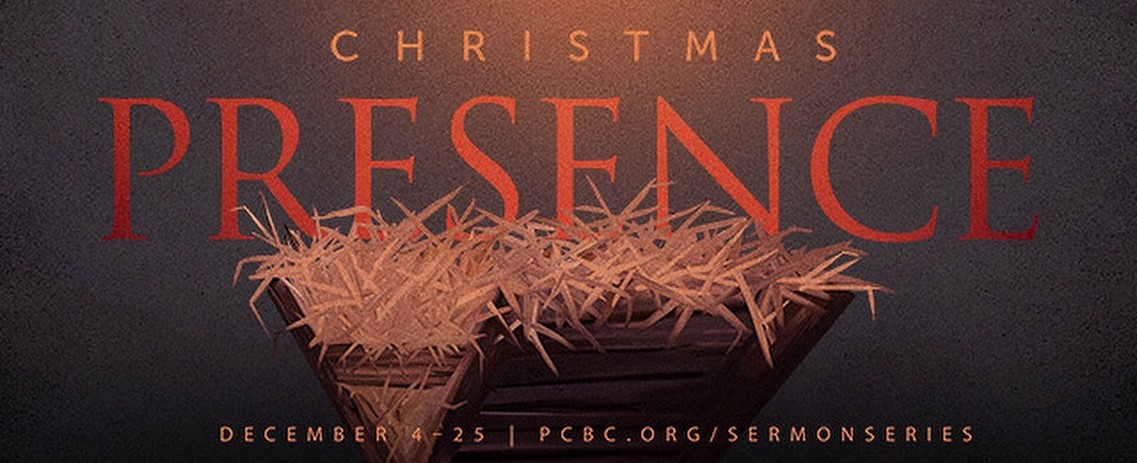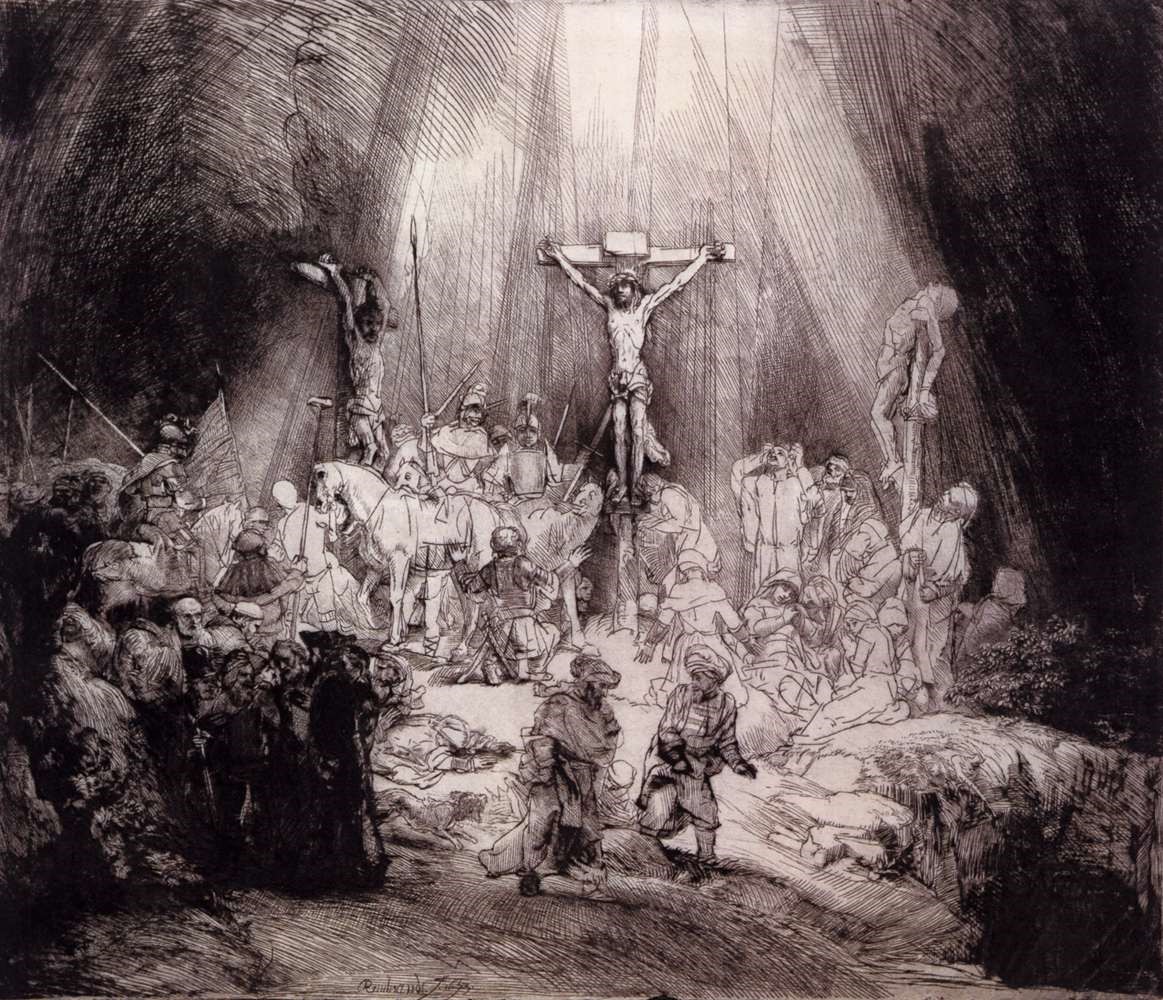
Christmas Reminds Us of Our Greatest Need and Our Greatest Gift.
As a kid, you know it’s getting serious when mom says, “Wait until dad gets home.” At other times dad shows up when a child is in need or, as we’re older, when we have car trouble or a financial need. Dad shows up when there’s a big announcement or a surprise. Sometimes dad shows up just to save the day. When the Father has to show up in person, it’s always a big deal. Think about it: at that first Christmas, God had to show up. He came in Person, to set things right. He didn’t come angry (“for God so loved the world”), but He did come to bring justice, to set things straight – not to punish us, but to rescue us from our sin.
But He had to show up in Person? Christmas begs the question: Why? Why did Jesus come? Paul tells us in 1 Timothy 1:15-17:
“The saying is trustworthy and deserving of full acceptance, that Christ Jesus came into the world to save sinners, of whom I am the foremost. But I received mercy for this reason, that in me, as the foremost, Jesus Christ might display his perfect patience as an example to those who were to believe in him for eternal life. To the King of the ages, immortal, invisible, the only God, be honor and glory forever and ever. Amen.”
Christmas Reminds Us of Our Greatest Need and Our Greatest Gift. “The true value of anything is known only when it is wanted.” J. B. Stoney
What did Jesus do? “… Christ Jesus came into the world…”
Matthew 1:23 says, He will be called, “’Immanuel’ (which means, God with us).” “And the Word became flesh and dwelt among us, and we have seen His glory, glory as of the only Son from the Father, full of grace and truth” John 1:14. This is Christmas presence. God showed up in Person.
Why did Jesus do it? “… to save sinners…” Christmas and the resulting Gospel, is not a gentle exhortation towards a more fulfilling life. It is the announcement of divine rescue from a life of self-destruction and an eternity in hell. The Good News of the Gospel is not that there is hope for you to change yourself, it’s that Jesus has “saved” you. This is why it’s not incidental that this story of redemption is called “Good News”. If it were merely information or a program for self-improvement, it would be called something else, like good advice or a good idea, or good enlightenment. Instead, Jesus came to SAVE sinners. Not improve them.
Reason and morality cannot show us a good and gracious God. For that, we need the Incarnation.
Why did He come in the flesh? – (Why the Incarnation?) Why did He have to show up in person? Couldn’t God (from heaven) just fix things? He came in the flesh:
- to show us that God exists – How do you know God exists? He came here in person to tell us so, to show us that He does and how He would live “IN PERSON”
- to empathize with us – to understand, to identify with us
“For we do not have a high priest who is unable to sympathize with our weaknesses, but one who in every respect has been tempted as we are, yet without sin.” Hebrews 4:15 He came to sympathize with us- so that we would TRUST Him.
- to live the perfect life on our behalf – He came not simply as our good example, He came as our perfect Substitute. He lived the perfect life FOR us, because we could not. God demands, not our progress, but perfection. And only in Christ is He satisfied.
- to physically die on the Cross – This is why our Message is not, humanity and it improved, but “Christ and Him crucified”. Christ is not just our good example; He is our perfect Substitute.
“Indeed, under the law almost everything is purified with blood, and without the shedding of blood there is no forgiveness of sins.” Hebrews 9:22
- to physically be raised to life again
- to be glorified in bodily form – Death results in the separation of the body and the soul. Our bodies go to the grave and our spirits go to the Lord. The separation continues until the resurrection. But w/ the Lord, He rose again, with a glorified body, the same as it was before & is now into eternity- and we will follow Him one day, at the final resurrection. He had to come in the flesh- to be born like us, to live, to die, & to be raised again, and to reign forever as the Risen King.
D.A. Carson: “If God had perceived that our greatest need was economic, he would have sent an economist. If he had perceived that our greatest need was entertainment, he would have sent us a comedian or an artist. If God had perceived that our greatest need was political stability, he would have sent us a politician. If he had perceived that our greatest need was health, he would have sent us a doctor. But he perceived that our greatest need involved our sin, our alienation from him, our profound rebellion, our death; and he sent us a Savior.”
What is my response? “… of whom I am the foremost…” Like Paul, we recognize our sinful state and humble ourselves before God. We will never truly celebrate Christmas until we realize how sinful we are. We will never be truly transformed by the Gospel until we realize how desperately we need a Savior.
For many of us, our greatest problem is not our badness but our goodness. We’ve concluded that “good people” are those who “do good” and “bad people” are those who “do bad”. Even our good works are done with sinful motives. Ironically, as theologian John Gerstner points out, “The main thing between you and God is not so much your sins; it’s your damnable good works. ”
Consider sin, not so much as breaking the rules, but putting yourself in the place of God as Savior, Lord, and Judge- through your own self-salvation project, it puts you in control. Sin is not as much about bad behavior up against good behavior. Sin is a condition of the heart. This is why we cannot rescue ourselves. Romans 3:23- “All have sinned and fallen short of the glory of God”, but that doesn’t stop us from measuring distances. We’ve forgotten that God demands perfection not progress. And He still does. Jesus came not to abolish the Law but to fulfill it. We say that we’re not saved by works but by grace, but many of do not believe that we’ve been saved by grace alone. We could say that we are saved by works, just not our own – we are saved because Christ fulfilled all of the crushing demands of God’s Law and He lived the perfect life on our behalf. In Christ, you are not defined by your past. You are defined by Jesus’ past. And His is perfect. Consider the elder brother in the story of the prodigal son. The older son was kept from the feast of salvation, not because of his remorse over his bad deeds, but pride in his good deeds.
When was the last time you realized your need? When was the last time you were truly broken over your sin? When was the last time you expressed your need for Him or thanked Him for it? The only thing that we bring to the table, is our sin that makes Christ’s sacrifice necessary for us.
“None is righteous, no, not one; no one understands; no one seeks for God. All have turned aside; together they have become worthless; no one does good, not even one?” – Romans 3:9-12. Christmas begins with the recognition of our great need for a Savior. Christmas Reminds Us of Our Greatest Need and Our Greatest Gift. It all starts with a recognition of our need. J. N. Darby, (a theologian/author in the 1800s) said it this way: “Wisdom and philosophy never found out God; He makes Himself known to us through our needs; necessity finds Him out. The sinner’s heart- yes, and the saint’s heart too- is put in its right place in this way.
“Necessity finds Him out.” Only in your need for God do you find Him. Do you live with a constant realization of your need for Him? If so, I know this about you: you are a worshipper. You live in constant gratitude for God’s grace to you. Let’s let Christmas Reminds you of your Greatest Need and your Greatest Gift. Christmas brings forth worship.
Paul’s response was worship: “Now to the King eternal, immortal, invisible, the only God, be honor and glory for ever and ever. Amen.” When you have an awesome dad, you know what you do- when he shows up to save the day? You praise him, you thank him. You talk about him. You tell all of your friends about him. You want everybody to meet him. God came in the flesh and the response of the angelic host was worship. Luke 2:14 says, “Glory to God in the highest, and on earth peace among those with whom He is pleased!”
Christmas Reminds Us of Our Greatest Need and Our Greatest Gift.





